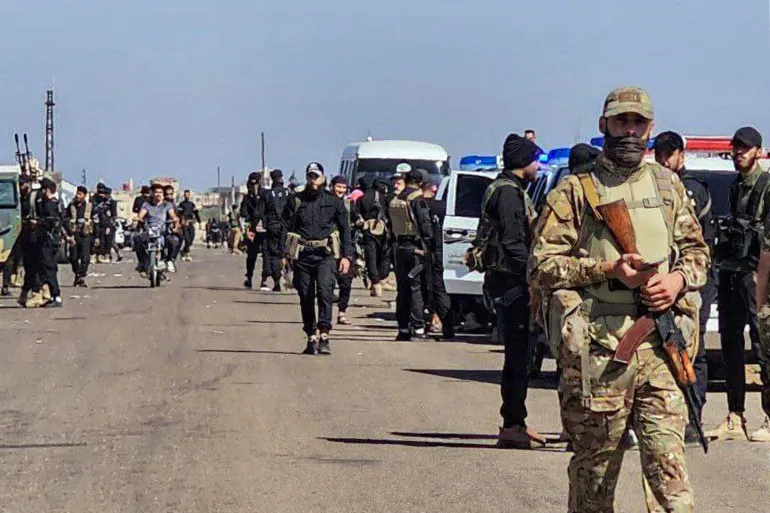Fighting between Bedouin tribes and local fighters in the predominantly Druze city of Sweida in southern Syria has killed more than 30 people and injured 100 others, the Syrian interior ministry says.
The ministry late on Sunday expressed deep concern and sorrow over the “bloody developments” that took place between “local armed groups and tribes” in eastern Sweida’s Maqwas neighbourhood.
“In this context, the Ministry of Interior confirms that units of its forces, in coordination with the Ministry of Defense, will intervene directly in the region to resolve the conflict, stop clashes, impose security, prosecute those responsible for the events, and refer them to the competent judiciary,” it said in a statement.
The Syrian Observatory for Human Rights on Monday said at least 37 people were killed, 27 of them Druze including two children.
“There is no solution to this except imposing security [measures] and activating the role of institutions to ensure civil peace and the return of life to its normal state in all its details,” Syrian Interior Minister Anas Khattab said in a post on X.
The Druze religious sect is a minority group that began as a 10th-century offshoot of a branch of Shia Islam. In Syria, they largely live in the southern Sweida province and some suburbs of Damascus, mainly in Jaramana and Ashrafiyat Sahnaya to the south.
Sunday’s clashes are the first outbreak of deadly violence in the area since fighting between members of the Druze community and security forces killed dozens of people in April and May.
It was triggered by a wave of kidnappings, including the abduction of a Druze merchant on Friday on the highway linking Damascus to Sweida, witnesses told the Reuters news agency.
“This cycle of violence has exploded in a terrifying way and if it doesn’t end we are heading toward to a bloodbath,” said Rayan Marouf, a Druze researcher based in Sweida who runs the Suwayda24 website.
Armed Bedouin tribesmen also launched attacks on Druze villages on the western and north outskirts of the city, residents said.



